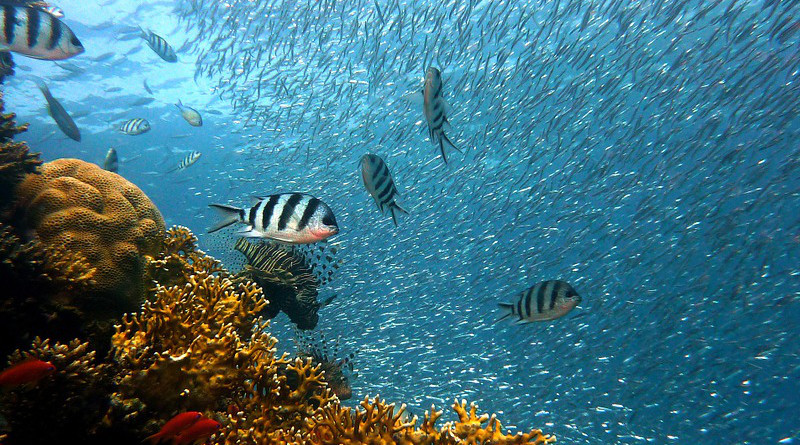UN’s Ocean Treaty Cries Out For Ratifications – OpEd
By Thalif Deen and IDN
When the UN finalized the text of a long-drawn-out Global Ocean Treaty on 4 March 2023, Secretary-General António Guterres described it as a major breakthrough because it marked “the culmination of nearly two decades of negotiations and builds on the legacy of the United Nations Convention on the Law of the Sea.”
This action, he remarked, was “a victory for multilateralism and for global efforts to counter the destructive trends facing ocean health, now and for generations to come. It is crucial for addressing the triple planetary crisis of climate change, biodiversity loss and pollution.”
The treaty, however, needs at least 60 ratifications to enter into legal force. But as it marked its first anniversary early this week, the treaty has been ratified by only two countries so far.
Laura Meller, from Greenpeace’s Protect the Oceans campaign, said the agreement of the Global Ocean Treaty, also known as Biodiversity Beyond National Jurisdiction (BBNJ) Treaty, was a sign that in a divided world, protecting nature could still triumph over political rivalries and corporate profits.
“The Treaty was announced with the words ‘the ship has reached the shore’—but for the ship to be an effective tool in ocean protection, at least 60 governments now must sign the Treaty into law, before time runs out”.
She said only Chile and Palau have ratified the treaty so far.
“They have sent a strong signal that the time to protect the ocean and all the life it supports is now. Other countries have started their ratification processes but are moving too slowly.”
“Many governments want to present themselves as ocean champions—and we expect them to follow in Chile and Palau’s footsteps and bring the treaty to life, so that the real work to protect the oceans can start,” she declared.
Treaty ratification is an executive act
Dr Palitha Kohona, Sri Lanka’s former Ambassador and Permanent Representative to the UN and former Head of the UN Treaty Section, told IDN while the frustration expressed by Greenpeace is understandable, ratification of a treaty is not an easy undertaking.
A treaty commitment is binding in international law. While the ratification of a treaty is an executive act and, under the Vienna Convention on the Law of Treaties, could be undertaken by the head of state, the head of government or the Foreign Minister, many states would ensure that all domestic laws, regulations and processes are compliant in advance with the legal undertakings in the treaty to be ratified, he explained.
“This takes time especially when it comes to maritime affairs. Considerable study precedes the legal act of ratifying a treaty”, said Dr Kohona, former Co-Chair of the UN Committee on BBNJ, which finalized the report on which the negotiations took place.
He said there may be laws and regulations, subsidy commitments, quotas, seasonal restrictions, etc which may require modification. There may also be international bilateral and multilateral treaty commitments which require modification.
These are time consuming processes especially in countries which are pressured by other urgent priorities, he argued.
In some countries, in addition, a treaty requires legislative approval prior to ratification. In the US, for example, under Article 2 of the Constitution, a proposed treaty ratification must obtain the consent of the Senate in advance.
The US resistance
As a consequence, the US has desisted from ratifying a raft of seminal multilateral treaties, including the UN Convention on the Law of the Sea, the CEDAW, and the UN Convention on Climate Change. The US, nevertheless, acknowledges that most provisions of UNCLOS are part of customary international law.
A proposed amendment to the Sri Lanka constitution, for example, would require prior parliamentary approval to any treaty action with implications for the sovereignty and territorial integrity of the country.
While Greenpeace understandably emphasizes conservation, Dr Kohona said, the High Seas Treaty places equal importance on benefit-sharing and technology transfer.
“The future of the multibillion-dollar pharmaceutical industry may rest on organisms harvested from the high seas. For developing countries, these aspects would be of equal importance.
He said it is crucial that those entities which are campaigning for the ratification of the High Seas Treaty, pay similar attention to the segments considered important by the developing world, to encourage ratification by developing countries.
While the conservation of high seas resources is critical, from a developing country perspective, sharing of the benefits of exploiting high seas genetic material is also paramount, he declared.
According to Greenpeace, the High Seas are home to millions of species and ecosystems, but less than 1% are fully protected. They are under-protected.
They are under increasing pressure from a range of threats, including industrial fishing pollution and the pollution and the emerging deep sea mining industry. To protect 30% of the oceans by 2030, “we must protect more than 11 million km² of ocean every year”.
A study published in January in the journal Nature and led by Global Fishing Watch revealed that 75% of the world’s industrial fishing vessels are hidden from public view.
The UN Ocean Treaty is the most significant multilateral environmental deal since the 2015 Paris Climate Agreement. Once ratified and it enters into force. the Treaty will go a long way toward improving the health and resilience of the ocean.
In September 2023, Greenpeace International published report setting out the political process to deliver protection for the global oceans. The report explores how cumulative pressures on the high seas are increasing and quantifies for the first time the growing fishing activity in areas earmarked for protection, using data from Global Fishing Watch.
The Greenpeace ship Arctic Sunrise has started a six-week expedition to the Galapagos islands to document the positive effects of marine protection and support the ratification of the UN ocean treaty.

